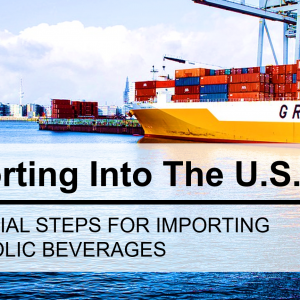Retailers today are more sophisticated and more powerful than ever before. Being aware of the strategies top retail outlets are implementing will help you devise a more successful retail presence for your beverage brand.
One growing trend amongst retailers is the use of private labels to build brand loyalty and increase profitability. To compete at retail now and in the future, it’s vital to understand what’s behind the private label approach, how retailers are leveraging it, and how it might impact new and existing brands.
What is a Private Label?
A private label product is manufactured by a contract or third-party manufacturer and sold under a retailer’s brand name, or through a licensing agreement. Often, the retailer specifies everything about the private label product including what goes in it, how it’s packaged and what the label looks like. The retailer also pays to have the product produced and delivered to the store. This strategy is in contrast to buying products from other companies with those companies’ brand names on them.
Some examples of retailers who utilize private labels are Walmart, Costco, Aldi, and Trader Joes. According to a report by the Private Label Manufacturers Association (PLMA), in 2018, private label made up just under 20% of the market share for consumables in the channels that Nielsen tracks.
Private-label goods are available in a wide range of industries from food to cosmetics. They are often positioned as lower-cost, high-quality alternatives to regional, national or international brands. Recently, some private label brands have been positioned as “premium” brands to compete with existing “name” brands. Earlier this year, Aldi rolled out a private label line of vegan food products under their Earth Grown brand.
Private Label Manufacturing
A private label or store brand can be the chain’s own name, or a brand name created by the retailer for their stores. The retailer will design the manufacturing, packaging and marketing of the goods in order to build on the relationship between the products and the store’s customer base. Store-brand goods are generally less expensive than national-brand goods, because the retailer can optimize the production to suit consumer demand and reduce advertising costs.
There are generally four types of store-brand product manufacturers:
- Large national brand manufacturers that utilize excess capacity to supply store brands.
- Small manufacturers that specialize in particular product lines.
- Major retailers and wholesalers that provide store brand products for themselves.
- Regional manufacturers that produce private label products for specific markets.
What Makes A Private Label Successful?
1. It supports the retail brand.
Consumers are becoming more trusting of retailers as the organizations that deliver their customer experience. As such, they expect the store brands to represent the same level of quality and similar attributes to the store itself. For example, Trader Joes keeps all its private brands free from high fructose corn syrup, GMO ingredients, hydrogenated oils, MSG, artificial colors and flavors, and preservatives.
2. It brings differentiation and adds value.
Private labels should bring differentiation to an existing category. As with national brands, private label brands perform best when they add something to the marketplace or address an unmet need. Private label brands provide an opportunity to fill a gap between existing brands or to bring new innovation to the market. In 2018, Target launched a subscription box service for its children’s private label clothing line, Cat & Jack, providing convenience for busy parents.
3. It has boundaries.
A successful private label, just as a national brand, needs boundaries in order to remain salient in the customer’s mind. Retailers can use private labels in many ways, but they must be clear and organized in their approach. Brand strategy principles apply to private brands as well, and companies must understand the different segments their products appeal to, the associations between brands, and how each brand aligns with the core brand. Macy’s is one example of a retailer with a well-defined private label strategy. In 2018, the company generated about 29% of its revenue in private label merchandise. In an article by CNBC, a Macy’s representative stated, “Some of our most loyal customers (and biggest spenders) are most loyal to us because of our private brands.”
4. It has a distinct visual identity.
Private label brands must utilize appealing packaging design with a clear focus on their target audience. Winning products will grab attention and engage consumers. Well-designed private labels differentiate products and deliver a clear brand proposition. Whether they are visually tied to the retailer brand or not, the packaging and visual identity of private label products need to compete with national brands. According to Kasper Ulf Nielsen, “People’s willingness to buy, recommend, work for, and invest in a company is driven 60% by their perceptions of the company and only 40% by their perceptions of their products.”
Opportunity or Threat?
What the growth of private label will mean for suppliers and national brands is yet to be determined. As with every area of uncertainty, the opportunity will go to those who understand the customer best and can deliver superior products and experience at the right price and profit margin. The game is constantly changing and knowing the motivation and moves of each of the players remains your best strategy for success.
This article was originally published on our parent company’s blog here.


